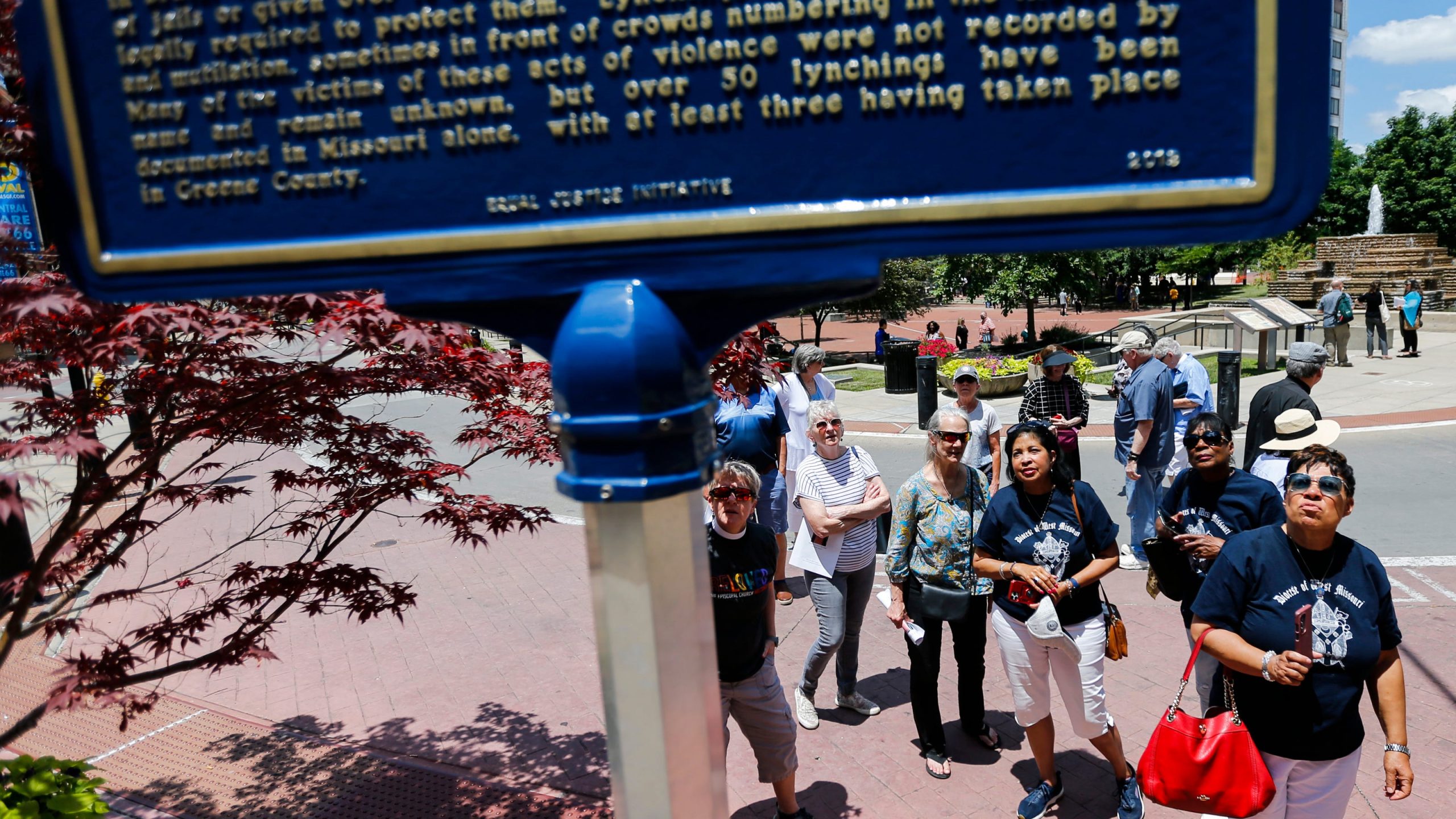Missouri
‘Say Their Names”: Missouri Priests, City Leaders Pay Respects at Site of 1906 Lynching

Missouri’s Historical Reflection
At noon Monday, Episcopal priests from across Missouri gathered at Park Central Square to remember the lives of three men who were lynched there in April 1906.The Juneteenth pilgrimage to Springfield was the first stop organized by the Diocese of West Missouri as part of a racial reconciliation effort.
“There will be a whole series of pilgrimages to Missouri’s lynching sites. This is the first one,” said Gary Allman, the spokesman for the diocese.
The diocese’s diversity and reconciliation commission issued a statement about the pilgrimage, which read in part: “We believe that the sin of racism harms all people of the community — oppressed, oppressors, and indifferent. We, therefore, have committed ourselves to work for the dismantling of racism through education, prayer, repentance, confession, forgiveness, and action, and we call upon all the people of west Missouri to join us.”
In a statement, the diocese said remembering the events that occurred on the square in 1906, the church hopes to ensure lynchings — and other incidents of racial injustice and violence — do not happen again.
The priests paid respect at the historical marker for lynching victims Fred Coker, Horace Duncan, and William Allen.
“On this very square there was a replica of the Statue of Liberty … and two of the young men were hung from that replica. Think about that for a minute,” Springfield business owner Lyle Foster said, as part of the event. “We must say their names.”

Foster said the men, who were innocent, were young and had not had a chance to live their lives yet.
“They hadn’t had the chance to experience so many of the things that was in their future because their future was cut off,” Foster said. “Likely perpetrators were held to be innocent and the reputation of this heinous crime cast a pall on our city and a cloud of uncertainty for the future of African Americans in our city. They were of course accused of a crime they did not commit.”
Foster said it is wrong to celebrate Juneteenth, a federal U.S. holiday commemorating the emancipation of enslaved African Americans, without connecting it to the ongoing fight for freedom and equality.
“When I celebrate Juneteenth, I celebrate on behalf of my ancestors,” he said.
Springfield is home to three churches that are part of the diocese: Christ Episcopal Church, St. James Episcopal Church, and St. John’s Episcopal Church.
The event was attended by local ministers, city and community leaders and members of the Springfield NAACP.

“This square is special to me not just for these three young men whose lives were unfairly taken but also for the indigenous folks who were marched across this very land in now what we know as the infamous Trail of Tears,” Foster said.
“Today in Springfield we again have elected officials on the city council, the school board, the business community who are from the African American community and Springfield is becoming more diverse.”
Read Also: Judge won’t throw out Forest Hills lawsuit challenging ban of race, identity discussionsTracey Wolff, pastor of Pitts Chapel United Methodist Church, said she grew up in St. Louis and heard about the 1906 lynching.
“Growing up in St. Louis, the way the story got told there was not really the story. All we were ever told is, ‘You know, there are no Black people in Springfield because of that lynching.’ That is how the story got told,” she said.
Wolff said when she moved to Springfield to attend Missouri State University in the 1980s and returned five years ago, she found that there were resilient Black families who stayed.
“The truth is a lot of people left but there was a group of African American people who never left Springfield, that stayed and rebuilt the community that was decimated … by what happened,” she said.













You must be logged in to post a comment Login